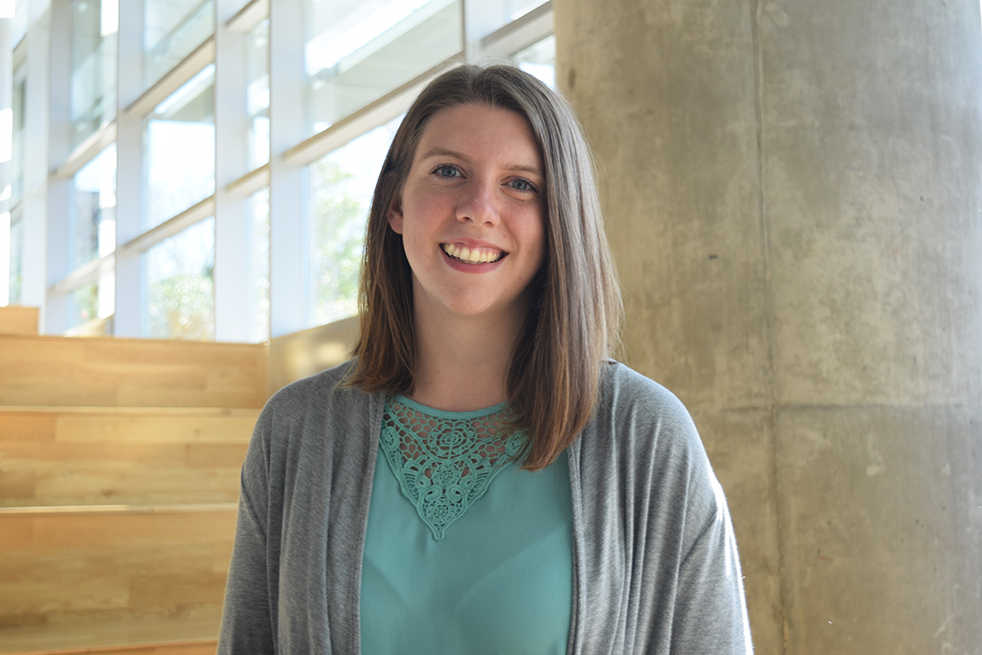Around 60 percent of chemical engineering students at Tech participate in undergraduate research before graduation. Lured in by this statistic and the opportunity to take an almost-guaranteed A as a technical elective, I decided to start reaching out to professors so I could join their lab groups.
In the fall of last year, I began my undergraduate research experience.
I’m in a unique position in where I don’t have a graduate student mentor; I work directly with my faculty research mentor on my own project. Four semesters later, I’m still doing it.
My first semester was plagued with technical problems. The shared lab equipment never seemed to be working (at least not for me) and the repair company kept leading us in circles.
Instead of doing “my research,” I was charged with miscellaneous tasks, like checking that all of the SDSs were in the right place and assisting a grad student with his work. I was, after all, taking this as a three hour lab class (free of quizzes and exams) and needed to do some work.
That semester’s work culminated in a brief slideshow presentation and paper explaining what I had done that semester (and more importantly, what I was going to do next semester).
That first semester wasn’t particularly engaging or fun, but I decided to do research another semester.
I figured — hey, I need another technical elective course and now that everything’s fixed in the lab, it should be relatively smooth sailing.
Anyone with experience in research knows that it would not, in fact, be smooth sailing.
I spent the next semester feeling frustrated with my research work that seemed to take away time from my real classes and social time.
I often dreaded going into lab and working on things that I felt were useless and such a small piece of the larger picture that they didn’t really matter.
It wasn’t until my faculty research mentor suggested (yet another) paper for me to read that I realized what I was struggling with.
The paper, “The importance of stupidity in scientific research” (Schwartz, 2008), gives a better picture of why research is so difficult.
With research, there’s this general broad goal of accomplishing something. Of making a meaningful contribution to society. That’s an incredibly daunting task.
When you have a question and the answers are limitless, it is hard to narrow things down, and it is hard to feel like you are sufficiently attacking the
right problem.
In the words of Schwartz, “The crucial lesson was that the scope of things I didn’t know wasn’t merely vast; it was, for all practical purposes, infinite.
“That realization, instead of being discouraging, was liberating. If our ignorance is infinite, the only possible course of action is to muddle through as best we can.”
Reading this paper and beginning to understand the importance of stupidity gave me deeper appreciation for the research I was doing.
I didn’t need to put so much pressure on myself to be right and to be as efficient as possible. Rather, I needed to continue to try and to ask questions.
“Productive stupidity means being ignorant by choice. Focusing on important questions puts us in the awkward position of being ignorant. One of the beautiful things about science is that it allows us to bumble along, getting it wrong time after time, and feel perfectly fine as long as we learn something each time,” wrote Schwartz.
The Georgia Tech Undergraduate Research FAQ page addresses why students would want to partake in research: “Undergraduate research is a great way to investigate possible career paths and to see whether you want to consider doing graduate work later on.
“It is also a good way to get to know a professor who is an expert in your major outside the classroom. It’s the perfect on-campus job!”
While this statement somewhat exaggerates the positives (or rather ignores some of the negatives), it does ring true. Research taught me a lot.
I learned that I don’t want to go to grad school because while I have come to enjoy doing research, I don’t want to do it full-time for the next four-or-so years.
I learned how to directly work with someone who knows a lot more than me and I learned that they can be stumped by the same questions.
And above all, I learned how to be comfortable with being stupid, because my ignorance isn’t a shortfall but rather an opportunity to make my own discoveries and create my
own answers.
